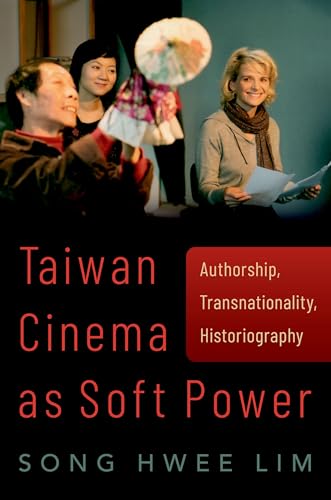Taiwan Cinema as Soft Power
Authorship, Transnationality, Historiography
Song Hwee Lim
BOOK REVIEW

Taiwan Cinema as Soft Power: Authorship, Transnationality, Historiography isn't just a book; it's an expansive journey through the kaleidoscopic world of Taiwanese cinema, where cultural intricacies collide with historical narratives, birthing a medium of soft power that resonates across borders. Authored by the brilliant Song Hwee Lim, this work plunges into the depths of how cinema serves as an avenue for Taiwan to assert its identity in an increasingly complex global discourse, making you rethink the way you perceive the art of film.
One of the most striking aspects of Lim's work is the way he intertwines authorship and transnationality, painting a portrait of a cinematic landscape that defies simplistic categorization. He compellingly argues that Taiwanese filmmakers have harnessed their craft as a form of resistance and identity assertion. The lens through which Lim analyzes this is nothing short of invigorating. He invites you to see beyond the screen-to understand how these films grapple with the delicate fabric of Taiwan's history, politics, and cultural identity. Lim's analysis is intricately layered, forcing you to question what it means to be "Taiwanese" in a world that often strives to erase those boundaries.
As you delve deeper into this work, it compels you to reflect on your own understanding of soft power. It doesn't merely serve as a theoretical concept; rather, it emerges as a potent force shaped by artistic expression. Lim deftly illustrates how Taiwanese cinema subtly asserts influence and fosters empathy across geopolitical divides, effectively flipping the narrative on its head. He presents a stunning array of case studies that highlight the triumphs and trials of cinema as a vehicle for cultural diplomacy. 🌍
The emotional weight of this book can't be overstated. Lim's exploration of historical context brings a palpable tension to the narrative. The spectral presence of undercurrents-colonial histories, national identity crises, and global recognition-infuses each chapter, leaving you feeling the urgency and intensity of the struggle for representation. Readers have noted the book's syncopation of personal and collective histories, resulting in moments that evoke both anger and inspiration. The stakes feel high, and you can almost hear the whispers of filmmakers past urging you to pay attention to their stories.
Critics have expressed both admiration and skepticism regarding Lim's conclusions. Some laud his ability to draw connections between diverse cinematic texts and broader socio-political implications, while others question whether he sufficiently addresses the complexities of cultural appropriation and representation within the diasporic context. Yet, isn't this the beauty of discourse? The push and pull of varying opinions enriches our understanding and compels us to engage more deeply with the subject matter.
Lim's prose flows with an infectious enthusiasm that mirrors his passion for cinema. He masterfully balances academic rigor with accessible writing, making Taiwan Cinema as Soft Power an essential read for anyone interested in film studies, cultural studies, or international relations. His clear-eyed exploration emboldens you to not only consume these films but to actively engage with their cultural ramifications.
What will haunt you long after you close this book is the realization of how deeply intertwined art and politics are. The films Lim discusses don't just provide escapism; they compel us to confront the nuances of representation, identity, and power. In an era where global narratives are constantly shifting, Lim's work serves as a critical reminder of the power of stories to shape our understanding of the world.
Leave behind any preconceptions and embrace this stunning exploration. Taiwan Cinema as Soft Power: Authorship, Transnationality, Historiography beckons all those willing to transcend mere entertainment and stare into the abyss of cultural significance. The journey is enlightening, triggering reflections that resonate long after the last page is turned. Dive into this world and let it challenge your perspectives; the understanding you glean might just transform the way you view not only cinema but the intricate tapestry of identity itself. 🌟
📖 Taiwan Cinema as Soft Power: Authorship, Transnationality, Historiography
✍ by Song Hwee Lim
🧾 246 pages
2021
#taiwan #cinema #soft #power #authorship #transnationality #historiography #song #hwee #SongHweeLim